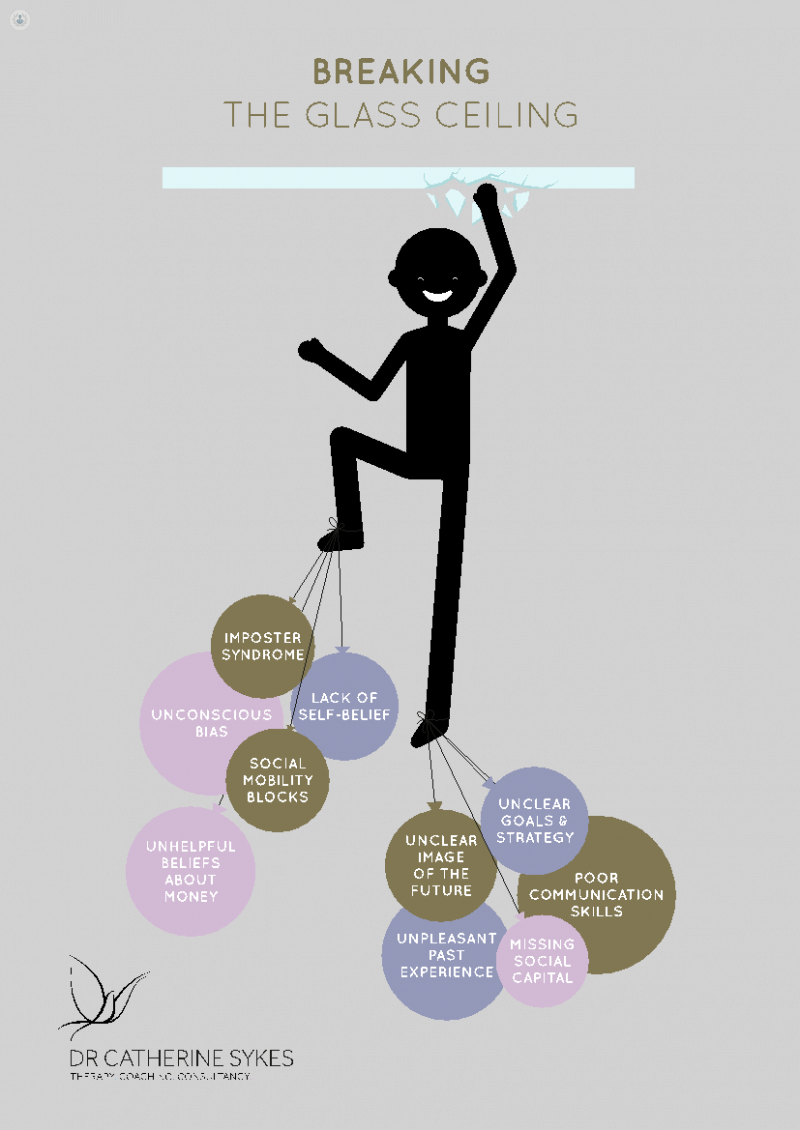How can high-achievers break the 'glass ceiling'?
Autore:Does it feel like there are invisible barriers that prevent you from rising through the ranks in your organisation? If so, it could be the ‘glass ceiling’. Dr Catherine Sykes, a renowned chartered psychologist from London with expertise in the psychology of high achievers, explains exactly what the glass ceiling is and how to break it.

What is the glass ceiling?
The ‘glass ceiling’ is a metaphor used to describe the invisible barriers that keep a given demographic from rising a beyond a certain level in an organisation. It is a term first coined by feminists in reference to the organisational barriers in the careers of high-achieving women. However, nowadays, it is used in reference to any barriers for any groups who are experiencing difficulties going beyond a certain level in an organisation.

Who is impacted the most?
Who it impacts the most depends on the profession and the organisation, and there is some data available to help us understand who is impacted the most. I’m particularly interested in who is impacted in elite professions in law and finance. Data from the Labour Force Survey in the UK shows that in top jobs, not only do women earn less than men, but women from working-class origins are at a double disadvantage. They earn on average £7,500 less per year than privileged-origin women, who in turn earn £11,500 less than privileged-origin men. The data is jaw-dropping, shocking and illustrates the complexities of meritocracy and how much improvement is needed to achieve it.
How have they been impacted?
Most data on the ‘glass ceiling’ effect tends to be large-scale surveys. This data tends to measure differences in pay and seniority but it doesn’t capture the culture inside workplaces and the lived experiences of career progression, which can be a very stressful process for high-achievers who are battling against the barriers.
Similarly, from such data, we can only speculate on the reasons behind the effect such as direct discrimination to the subtler and more insidious effects of stereotyping, microaggressions and homophily (the tendency among decision-makers to favour those who are like themselves).
However, from my experience, there are many psychological barriers that influence an individual’s ability to break through the ‘glass ceiling’. These psychological and invisible organisational barriers are a perfect mix for decreasing self-esteem, employing unhelpful strategies for success and ultimately causing stress, anxiety, depression and physical illness.
What are your top tips on breaking the glass ceiling?
- Firstly, it is important to know your individual reasons for wanting to break the glass ceiling. It’s not an easy journey, so having meaning about why you want to advance in your career will give you the fuel and motivation to break the ceiling.
- Then, you have to start to recognise that invisible organisational barriers might be in place in your workplace. It is common to think that the biases are personal. Once you start to accurately name what is happening, you can take steps to build up your confidence to cleverly shine a light on the behaviours, attitudes and practices that reinforce the glass ceiling. While invisible barriers are not fair, it is important not to get angry about them. Instead, make a promise to yourself that when you become a leader with more power, you will take steps to address institutional discrimination. A good first step would be to accurately measure the glass ceiling effect by being transparent about the groups that make up senior leadership!
- Next, it is time to work on your own psychological barriers to breaking the glass ceiling. Many psychological barriers hold people back from advancing in their organisation:
- imposter syndrome
- lack of self-belief
- poor communication skills
- unclear career goals and strategy
- an inability to think about the future
- unhelpful beliefs about money and success
- feeling embarrassed about your background and your authentic self
All of these need attention and effort to overcome them.
Take part in Dr Sykes’ survey on the experience of Socially Mobility in Law.
https://www.surveymonkey.co.uk/r/DB83QWT
By visiting Dr Syke’s profile and arranging your first consultation, you can receive the best advice and assistance in dealing with psychological barriers and breaking the glass ceiling.


